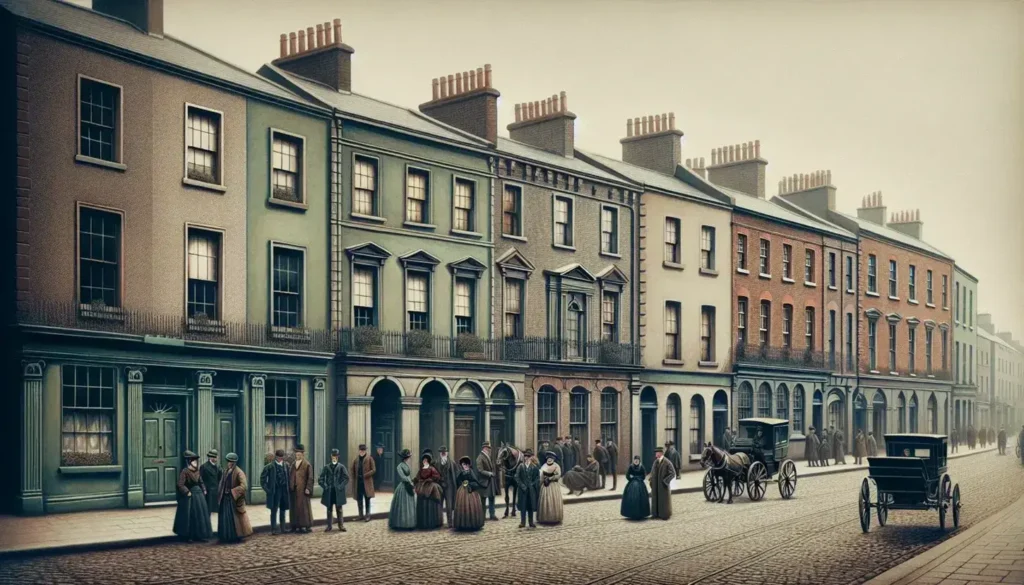Ireland’s political landscape has undergone significant transformations over the centuries, marked by pivotal events that have shaped its current state. From the early days of British rule to the establishment of an independent republic, each phase has left a lasting imprint on the nation’s identity. This article explores the crucial moments in Irish political history, shedding light on their profound impact and the enduring legacy they have left behind.
The Battle for Home Rule
In the late 19th and early 20th centuries, the quest for Home Rule became a central issue in Irish politics. Home Rule referred to the demand for a self-governing Ireland within the United Kingdom, a concept that gained traction among Irish nationalists. The Home Rule movement was spearheaded by the Irish Parliamentary Party (IPP) under the leadership of Charles Stewart Parnell. Parnell’s charisma and political acumen rallied significant support, but the path to achieving Home Rule was fraught with challenges.

The passage of the Third Home Rule Bill in 1912 marked a significant milestone, but its implementation was delayed due to the outbreak of World War I. The war’s end saw a dramatic shift in Irish politics with the 1916 Easter Rising, a pivotal event that reignited the push for independence. The subsequent execution of its leaders galvanized public opinion, leading to the 1918 general election, where the Sinn Féin party, advocating complete independence, secured a landslide victory. This period underscored the limitations of Home Rule and set the stage for a more radical approach towards achieving full sovereignty.
The Struggle for Independence
The early 20th century witnessed a seismic shift in Irish politics with the struggle for independence. The Anglo-Irish War, also known as the Irish War of Independence (1919-1921), was a guerrilla conflict between the Irish Republican Army (IRA) and British forces. The conflict resulted in significant casualties and widespread destruction, but it ultimately led to the Anglo-Irish Treaty of 1921. This treaty established the Irish Free State as a self-governing dominion within the British Commonwealth, granting Ireland a measure of autonomy while retaining ties to Britain.
However, the treaty was highly contentious and led to a split within the nationalist movement, resulting in the Irish Civil War (1922-1923). Pro-treaty forces, led by Michael Collins, clashed with anti-treaty factions, who viewed the treaty as a betrayal of the quest for full independence. The civil war left deep scars on Irish society, but it also cemented the foundation of the Irish Free State. The eventual emergence of the Republic of Ireland in 1949 marked the culmination of this tumultuous journey, severing the last ties with Britain and establishing a fully independent nation.
The Path to Modernization
Post-independence, Ireland faced the challenge of modernization and economic development. The early decades were marked by economic stagnation and emigration, as the country struggled to build a robust economy. However, the mid-20th century saw significant political and economic reforms that laid the groundwork for modernization. The leadership of Éamon de Valera and later Taoisigh like Seán Lemass played crucial roles in steering Ireland towards a more prosperous future.

Lemass, in particular, is credited with spearheading economic modernization through the introduction of free trade policies and attracting foreign investment. His partnership with T.K. Whitaker, who authored the transformative economic plan “First Programme for Economic Expansion,” was instrumental in reshaping Ireland’s economy. These reforms opened Ireland to international markets and set the stage for the Celtic Tiger era of the 1990s and early 2000s, a period of unprecedented economic growth. The economic boom brought about significant social changes, transforming Ireland into a more open and progressive society.
Conclusion
The evolution of Irish politics is a testament to the resilience and determination of its people. From the struggle for Home Rule to the quest for independence and the journey towards modernization, each phase has left an indelible mark on Ireland’s political and social landscape. These key moments in history not only shaped the nation’s identity but also paved the way for a future rooted in sovereignty, economic prosperity, and progressive values. Understanding this evolution provides valuable insights into the complexities and triumphs of Ireland’s political journey.
